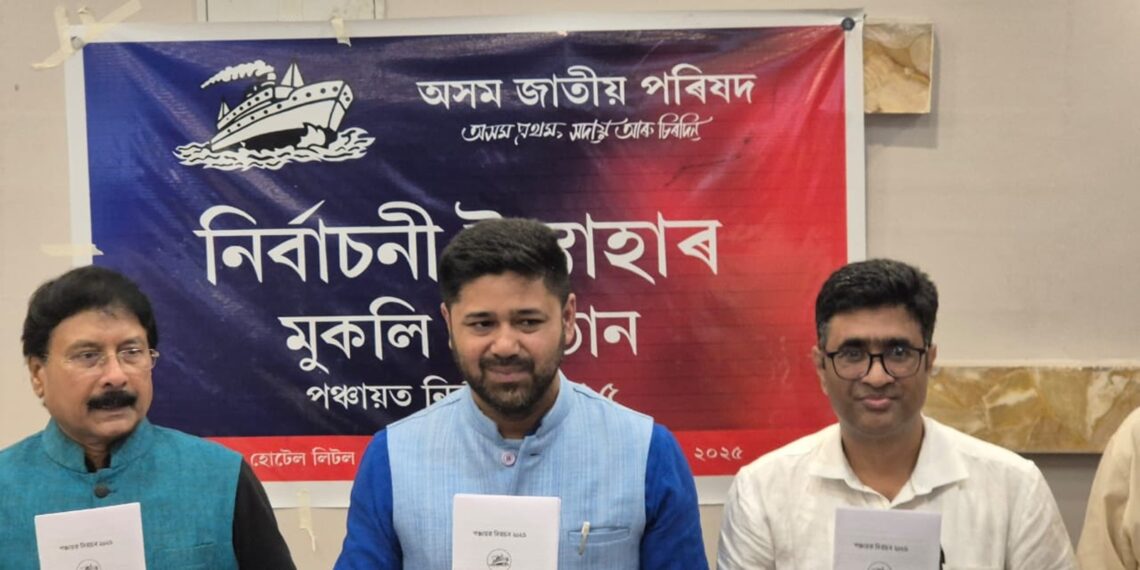Guwahati: With the 2025 Panchayat elections on the horizon, the Assam Jatiya Parishad (AJP) has unveiled its election manifesto, promising a comprehensive roadmap for grassroots governance, local economic development, and the preservation of Assam’s cultural heritage.
At a press conference in Guwahati, AJP president Lurinjyoti Gogoi and general secretary Jagadish Bhuyan released the party’s nine-point agenda, emphasising a return to the principles of decentralisation, transparency, and participatory democracy.
Central to the party’s manifesto is the empowerment of Gram Sabhas as the ultimate decision-making bodies in rural development.
The AJP has pledged to grant Panchayats direct control over budgets and essential services such as education, healthcare, water supply, and sanitation.
The party also aims to enhance transparency through mandatory monthly Gram Sabha meetings and the creation of 11-member community monitoring committees.
Real-time access to Panchayat budgets and projects will be made available online, with display boards installed in Panchayat offices to increase public accountability.
The manifesto also lays out plans to boost the rural economy through the “One Panchayat, One Product” model, promoting local industries such as handloom, handicrafts, dairy, poultry, and traditional foods.
To support entrepreneurship, the party promises to facilitate access to bank credit and vocational training.
On the agricultural front, the AJP has proposed the formation of farmer advisory councils at the Panchayat level and the promotion of organic farming practices.
It also advocates for Panchayat-led paddy procurement systems to ensure better market access and fair prices for farmers.
Gender and youth representation form another key pillar of the manifesto.
The party has committed to 50% representation for women and young people in all Panchayat committees.
It also plans to set up National Service Volunteer Groups in every village and introduce training in digital literacy and entrepreneurship for rural youth.
The manifesto envisions a Panchayat-centric model of education, healthcare, and nutrition. Government schools, health centres, and Anganwadi services would be brought under local administration. The party also proposes setting up “Nutrition Gardens” in schools to improve child food security.
In terms of infrastructure and environmental protection, the AJP has advocated for community-driven planning in the development of roads, drainage, and drinking water systems.
A large-scale “Green Village Mission” is proposed to drive plantation and environmental awareness campaigns across rural Assam.
Cultural preservation is also a priority for the party.
ALSO READ: Karnataka food poisoning incident: 22 Meghalaya children return home
The manifesto includes initiatives to safeguard Assamese and indigenous languages like Mising, Bodo, Karbi, Dimasa, Rabha, and Tiwa.
AJP proposes establishing Folk Culture Learning Centers and supporting mobile theatre groups and literary societies to protect Assam’s vibrant traditions.
The party further promises to bolster the legal and financial autonomy of Panchayati Raj institutions.
It has proposed the establishment of “Nyaya Panchayats” to handle local disputes without the intervention of police or the judiciary and has called for reforms in District Planning Committees to better reflect grassroots development priorities.















